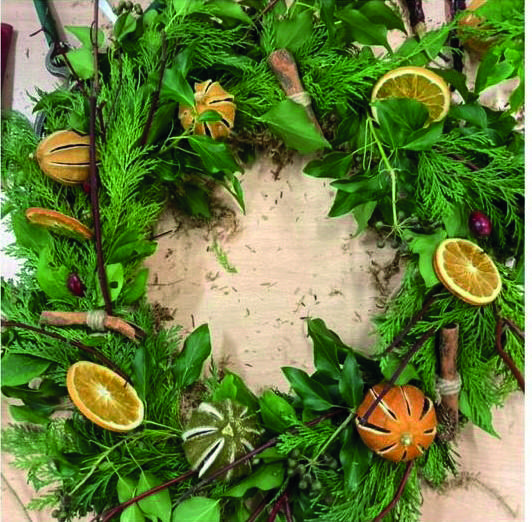The New Year is always a great time to consider making positive changes. Here are suggestions from Wokingham-based Plastic Free Home when it comes to living more sustainably in 2024 and beyond…
1. Shop smarter
Aim to only buy and consume what you need, to help reduce your footprint and the amount of waste you produce. Support local and independent businesses wherever possible and explore how you might rely less on big supermarkets and major retailers. Is there a zero waste shop or business, butchers, greengrocers, bakery and so on near you? Aim to buy sustainably sourced, ethically produced, high quality and long-lasting products. Think – where has the product come from, who made it, under what conditions and where? What from? How is it packaged? And how can it be disposed of, reused or recycled afterwards?
2. Lightbulb moment
Energy is responsible for around a quarter of our emissions. If you haven’t already, switch to a renewable energy supplier, or at least a green tariff with one of the larger ‘big six’ energy companies. From insulating your home and avoiding endless devices and gadgets to using central heating sensibly and washing your clothes on a cooler setting and drying them on a line, consider ways to reduce your use of energy at home. And the old classic – turn off lights, appliances and devices and don’t leave things on standby where avoidable.
3. Staycationing
Taking one medium to long-haul flight generates more emissions than an average person in many countries produces in a whole year. In recent years we’ve all been reminded of just how much the UK has to offer – get out there and explore it more before venturing further afield. Even cutting two annual overseas holidays down to one can make a big difference.|
|
4. Plan ahead
We live in a fast-moving and convenience-led world, which has resulted in us becoming lazier and far more wasteful. Plan ahead when going out – carry a refillable drinks bottle, take a packed lunch or picnic, and if you can’t live without caffeine, a reusable coffee cup too. The same goes for a reusable bag – you never know when you might need one. If you are buying on the go, consider the less packaged and more eco-friendly options. Planning ahead is also a good idea when doing your weekly shop. Make a shopping list and stick to it, to avoid unnecessary impulse buys. And when buying gifts all year round, share lists with family, friends and colleagues or find out what the recipient(s) really like or need to avoid giving something they won’t enjoy or make use of.
5. Not so fast fashion
The fashion industry is responsible for around 10% of global emissions and globally just 12% of the material used for clothing ends up being recycled. Buy far fewer clothes and aim for organic or naturally derived textiles (e.g. 100% cotton) and clothes that are responsibly sourced and made. If the company offers a closed loop option, allowing you to return items for recycling when you no longer want them – even better.
6. Waste not, want not
Nowadays, very little should end up in ‘the bin’. Be sure that you are disposing of, recycling and reusing everything you use correctly, from kerbside, food and garden waste collections to supermarket recycling points and local TerraCycle schemes. And if you can donate, pass on or sell something, do.
7. Nurture nature
Nature was there for all of us when we needed it most during pandemic times. Now it’s our turn to be there for it. Plant trees, wildflowers and pollinator friendly plants, add bird, insect and animal feeders and create habitats, litter pick locally, support a wildlife charity. Don’t pave over a large area of your garden and avoid artificial grass. There are many ways to show you care.













